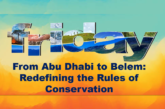Safeguarding Public Space
By Dr Arvind Kumar
In order to prepare India for a competitive and global future, it is essential to devise mechanism for individual empowerment and better governance in the new millennium, where civil society is on par with government; and in which tough yet flexible individuals can participate in and expand public forums on their own initiative and thus help to create a society that addresses pioneering challenges, and is more creative and imaginative. Such an assumption entails a spirit of self-help and empathy that presupposes ‘a dynamic public space’ as its incubator. What is meant is obviously a metaphoric space; a sphere in which the public good is collectively and openly negotiated. But it is equally apparent that such empowerment requires ‘real’ public spaces like parks, squares, promenades or other venues that support rich public cultures and nurture active individuals.
An open society requires space for people to assemble, to come in contact with people of other walks of life; and where they can make political claims heard and seen. Public space is thus a laboratory of democracy and civility. It is not mere official property, but in actual fact a breeding ground for tolerance and the foundation of democracy, and it is the job of government to safeguard its existence. Rapid pace of urbaniztion should not be at the expense of public space. The land mafia has made public space an endangered species and it needs protection.




